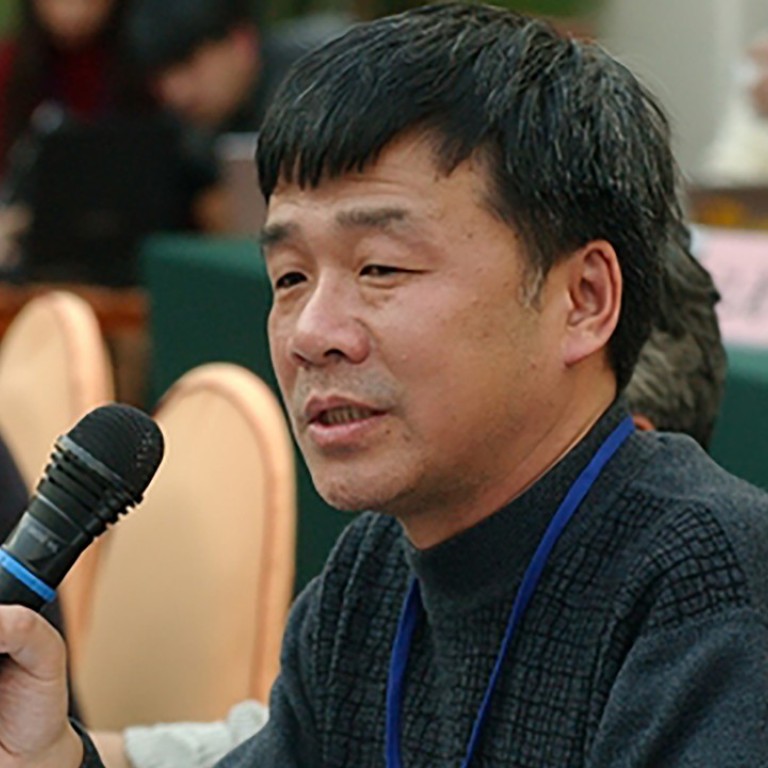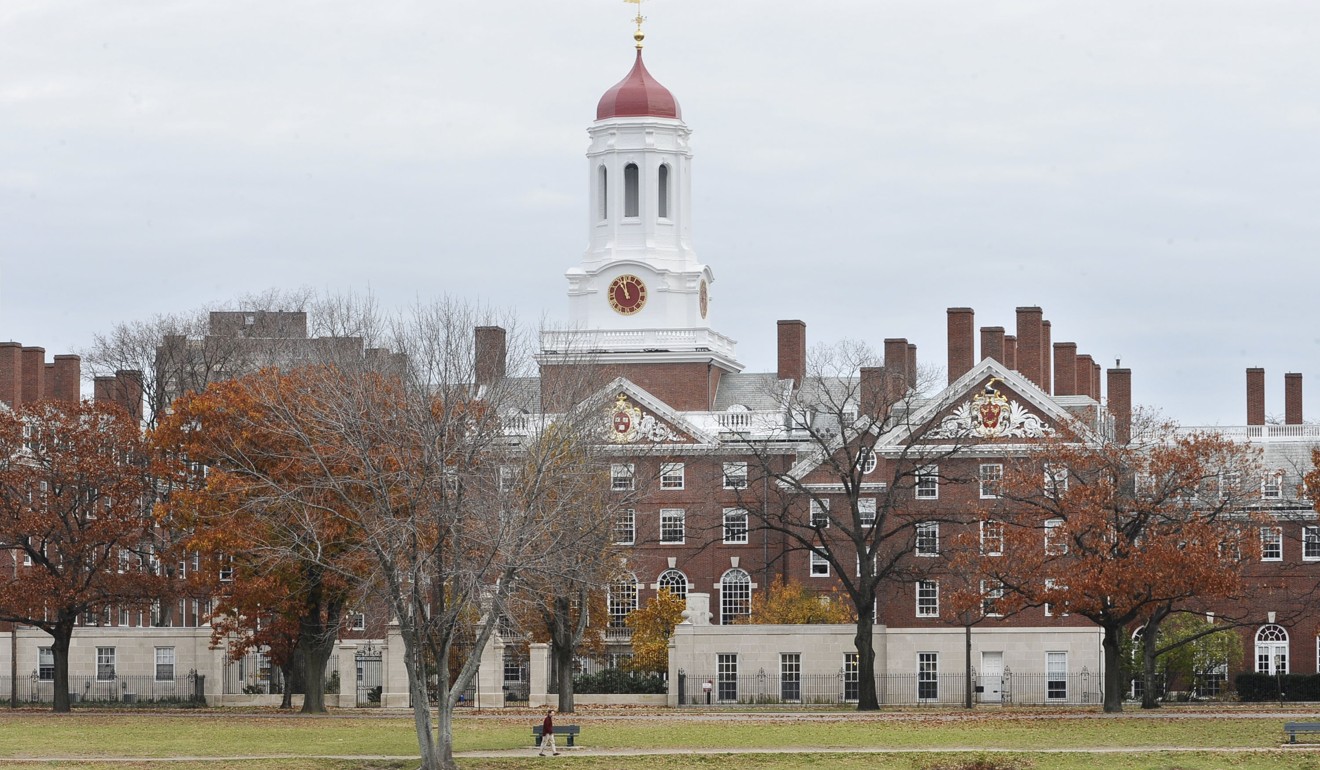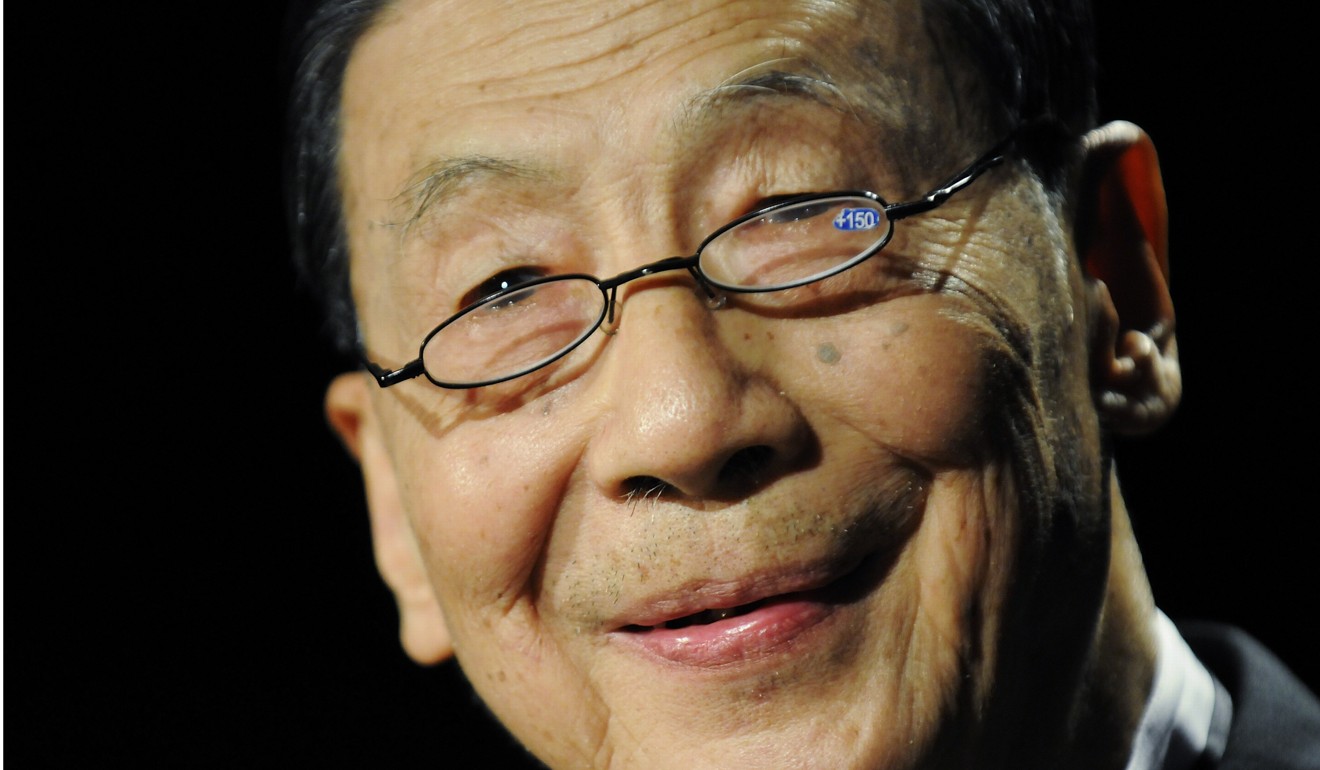
Unirule economist barred from leaving China for Harvard event on ‘national security’ grounds
- Sheng Hong, executive director of independent think tank, was due to attend a seminar on China’s 40 years of reform and opening up
- His colleague Jiang Hao was also stopped from leaving Beijing for same event
The director of an independent Chinese think tank has been barred from leaving the country to attend a seminar at Harvard University on the grounds that he would “endanger national security”, as Beijing continues to silence liberals critical of its policies.
Sheng Hong, executive director of the prominent Unirule Institute of Economics, was due to attend a symposium at the American university reflecting on China’s 40 years of reform and opening up.
But the liberal economist was stopped at Beijing Capital International Airport from leaving on his flight to Boston on Thursday morning.
“They told me I would endanger national security and was not allowed to leave the country,” Shen told the South China Morning Post on Monday. “I was completely shocked. How can my attendance at an academic conference affect national security? This is absolutely absurd,” he said.

Sheng’s colleague, Jiang Hao, a researcher and acting deputy director of Unirule, was also stopped from leaving Beijing on Saturday for the same event.
“Unirule is obviously being targeted here,” Jiang said, adding that border control officers did not give him any explanation for why he could not leave the country.
Beijing’s entry and exit administration could not be reached for comment on Monday.
Cornell decision adds to growing climate of fear on Chinese campuses
The four-day seminar begins on Monday and marks the 40th anniversary of China’s economic liberalisation introduced by late paramount leader Deng Xiaoping. It is co-sponsored by Harvard’s Fairbank Centre for Chinese Studies and Unirule and has been in the works since spring, Sheng and Jiang said.
“It’s disappointing but I think it only reinforces the important of events like these in encouraging both reflection on the history of China over the last 40 years and also on China’s future directions,” Fairbank Centre director Michael Szonyi said on the first day of the conference.
“Although we are sorry that president Sheng Hong is not here, we decided to continue the events even in his absence,” Szonyi said.
More than a dozen prominent Chinese scholars have been invited to give speeches at the event. Apart from Sheng and Jiang being blocked from leaving the country, Zhang Shuguang, another economist with Unirule, was denied a visa, and a number of scholars turned down the invitation, citing “inconvenience” – a euphemism for official pressure in China, according to Jiang.

Known for its liberal views, Unirule has been a firm advocate of the market economy and regularly challenges the government on economic policies such as its huge subsidies for bloated state-owned enterprises.
The well-respected institute – founded in 1993 by leading liberal economist Mao Yushi – has found itself in hot water under President Xi Jinping’s administration and become a target of its sweeping crackdown on academic freedoms and dissent.
In January last year, online censors shut down its website and deleted the social media accounts of several of its members. Since then, the think tank has twice been locked out of its office and subsequently evicted by its landlords under government pressure. The authorities are also looking into withdrawing the business licence of its consultancy firm, in an apparent attempt to cut its funding.
Deng Xiaoping’s son urges China to ‘know its place’ and not be ‘overbearing’
But that has failed to silence its members. Last week, Sheng wrote a scorching opinion piece on the Financial Times Chinese-language website warning that Beijing was at risk of abandoning Deng’s reform policy of free markets and open trade, which would lead to conflict with the West.
Sheng said he did not want to speculate on whether the article, which was widely shared on Chinese social media, had played any part in the government’s decision to ban him from leaving the country.
“It is the authorities who have the responsibility to give a clear definition of ‘endangering national security’. It can’t be used as casually as that – this is a very alarming message to send to the world,” he said.
On Twitter, Sheng posted a photo of himself and late economist and Nobel laureate Ronald Coase, taken when he attended a workshop at the University of Chicago 10 years ago commemorating the 30th anniversary of Deng’s economic reform. “[Back then,] I felt like the reform had already been accomplished,” he wrote. “[Now], it seems like a lifetime ago.”
With additional reporting by Jun Mai

